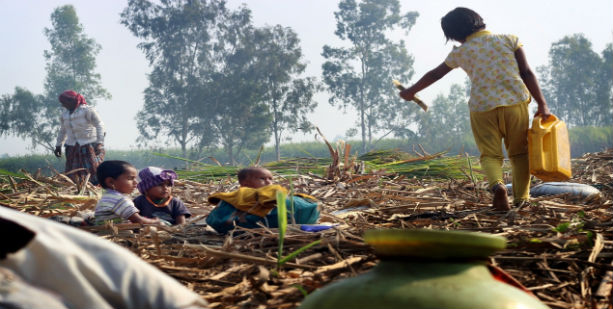
International Women's Day 2016 - join us in the fight for women's right to food, water and social protection

Women are disproportionally affected by malnutrition and food insecurity. Today, some 793 million people are chronically undernourished, of whom 70 percent are women.
The causes of women's massive overrepresentation among those who are deprived of one of the most essential human rights - the right to food - are also well known. They include discrimination with regard to access to employment, pay equity and property rights, lack of maternity protection and access to child care facilities and an unequal burden of family responsibilities.
Since 2009, the IUF has two (women) representatives on the Inter-governmental Committee on World Food Security (CFS). This has led to recognition of the crucial role that workers in the food chain are playing and to the need to integrate gender equality into action at all levels to improve access to food for all. According to an FAO report from 2011, progress in removing these obstacles to gender equality could reduce the number of undernourished people by 12-17 percent.
Food security cannot be achieved without the active involvement of unions at policy level and in collective bargaining. Improving women's access to paid employment and social protection is therefore on the bargaining agenda of IUF affiliates in various regions. The Pakistan Food Workers' Federation (PFWF) has through collective bargaining obtained more jobs for women and increased maternity leave in the Coca Cola plants. Recently, the first women forklift operators were hired and more women are being trained. The union has also succeeded in gaining day care centers. In Colombia, the agricultural workers' union Sintrainagro has introduced a clause in the collective agreement providing for increased employment of women in the banana sector, opening up 600 new job opportunities for women.
African affiliates have fought against discriminatory practices with regard to maternity protection, breast feeding, health and safety including sexual harassment and inclusion in social security schemes. With more and more women aware of their rights, they are increasingly successful in securing better conditions.
One of the main issues of the CFS meeting in October 2015 was the crucial role of water for food security and nutrition as well as equal access to water for all. The IUF report for the negotiations If water is life stressed that while agriculture is the biggest user of water, many agricultural workers do not have access to potable water in their workplaces and called on governments to ensure the universal right to water and sanitation. The CFS adopted a recommendation calling for measures to "Develop and promote investments to: improve household availability of and access to safe water for drinking and sanitation; reduce the drudgery and burden of water collection and disposal for all, in particular women and girls; reduce the incidence of water-related health risks; improve conditions for hygiene and food safety; enhance nutritional status; and provide access to safe drinking water to all workers at the workplace. "
The struggle for women's basic rights must move higher up on the agenda of all trade unions in order to reduce the unacceptable number of women who are lacking access to food or are undernourished.
On the policy level, it is important for unions to provide active input into the CFS through the IUF representatives and demand and secure the inclusion of unions in the discussions on national policies on food security.
 Facebook
Facebook Google+
Google+ Reddit
Reddit Twitter
Twitter






